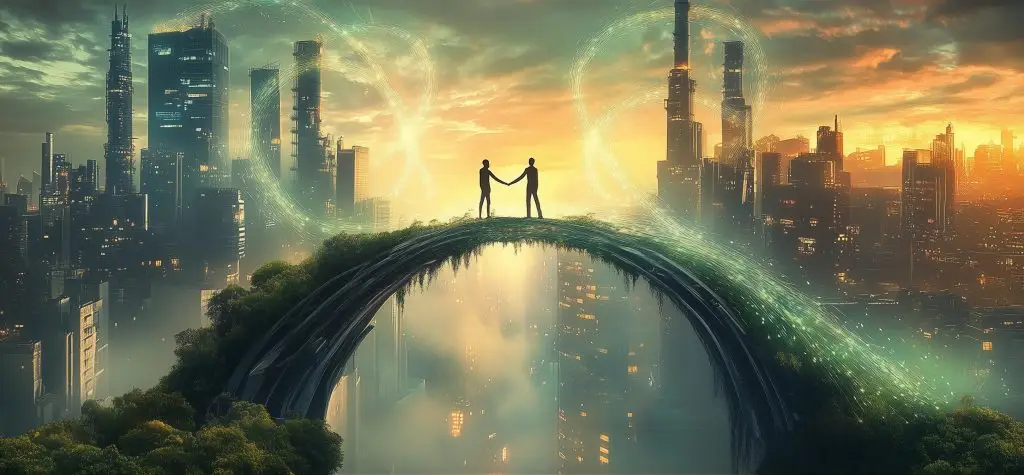In “Love in No Man’s Land,” one of the central themes I explore is the power of empathy in bridging seemingly insurmountable divides. Aria and Zain, our protagonists, come from worlds that couldn’t be more different. Gynopia, with its matriarchal structure and focus on emotional intelligence, starkly contrasts Andros’s patriarchal, militaristic society. On the surface, it seems impossible for these two to find common ground, let alone form a connection.
But that’s where empathy comes in.
As I wrote their story, I was fascinated by the way empathy can break down barriers and challenge preconceptions. When Aria and Zain are forced to work together, they begin to see beyond the stereotypes and propaganda they’ve been fed their entire lives. They start to recognize the humanity in each other despite their differences.
This journey of understanding isn’t easy. Both characters have to confront their own biases and question beliefs they’ve held their entire lives. It’s a process that’s often uncomfortable, sometimes painful, but ultimately transformative.
In our own world, divisions can feel just as insurmountable as those between Gynopia and Andros. Political polarization, cultural clashes, ideological differences—these rifts seem to grow wider every day. But what if, like Aria and Zain, we tried to truly understand those on the other side?
Empathy doesn’t mean agreeing with everyone or abandoning our own beliefs. Rather, it’s about recognizing the validity of others’ experiences and emotions, even when they differ from our own. It’s about finding the common humanity that unites us all, regardless of our backgrounds or beliefs.
In “Love in No Man’s Land,” empathy becomes a revolutionary act. It challenges the status quo and threatens the power structures that rely on division and mistrust. As Aria and Zain discover, truly seeing and understanding the “other” can be the first step towards transformative change.
But empathy alone isn’t enough. It needs to be coupled with action. In the novel, Aria and Zain’s growing understanding of each other drives them to work for change in their respective societies. They begin to envision a world where cooperation replaces conflict, where differences are celebrated rather than feared.
This vision isn’t just a fantasy. History has shown us repeatedly that empathy, combined with courageous action, can overcome even the most entrenched divisions. From the civil rights movement to the fall of the Berlin Wall, countless examples of empathy and understanding paved the way for monumental change.
As you read “Love in No Man’s Land,” I invite you to reflect on the role of empathy in your own life. How might seeking to understand those different from you change your perspective? What divisions in your community might be bridged through empathetic listening and action?
The journey of Aria and Zain reminds us that change begins with individuals willing to step outside their comfort zones and truly see the humanity in others. In a world that often seems irrevocably divided, their story offers hope – a reminder that love, understanding, and empathy have the power to transform not just individuals but entire societies.

